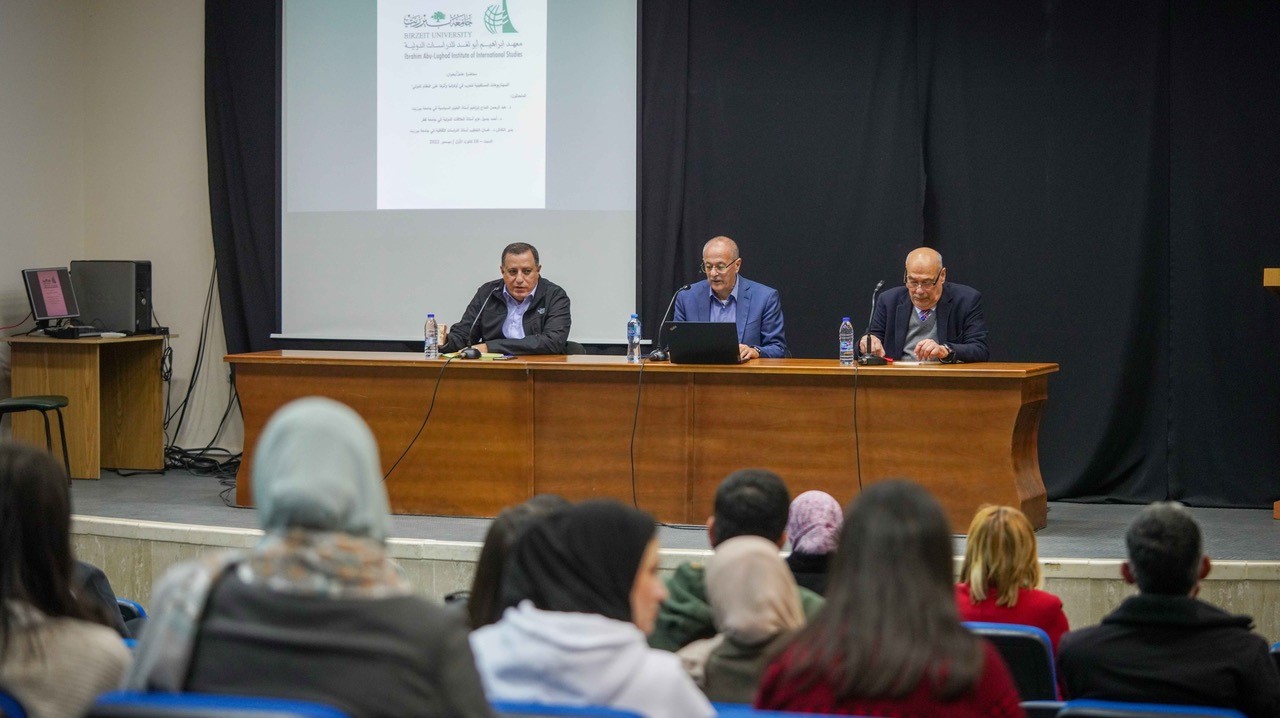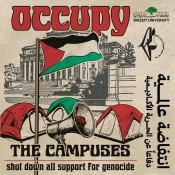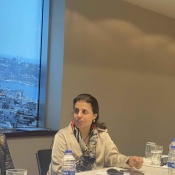Ibrahim Abu-Lughod Institute presents panel on War in Ukraine
The Ibrahim Abu-Lughod Institute of International Studies at Birzeit University organized a panel titled “Future Scenarios for the War in Ukraine and Its Impact on the International System.” The panel was directed by Dr. Ghassan Khatib, professor at the Department of Philosophy and Cultural Studies at Birzeit. Speakers at the event included Dr. Abderrahman Ibrahim, professor at the Department of Political Science at Birzeit, and Ahmad Jamil Azem Hamad, professor of international studies at Qatar University.
Dr. Ibrahim provided a historical background of the Russian-Ukrainian crisis. Dr. Ibrahim stated, “Although Ukraine and Russia share a common history that dates back to the Tsarist autocracy, the conflict emerged after Russia annexed Crimea following the Ukrainian Revolution that overthrew the pro-Russian government in Ukraine in 2014.” As for future scenarios, Dr. Ibrahim reckons that the Russian military operation will end and will be followed by negotiations.
Dr. Hamad explored the war on Ukraine using theories of realism, liberalism and hard and soft power. He asserted that Russia has suffered severe economic losses, which weakens its position as a global center of power. Dr. Hamad estimates that the NATO will not interfere directly in the war; instead, the crisis will become a proxy war until Russia is drained to the point of collapse.
In an analysis focused on the economic dimension of the war, Dr. Khatib discussed the influence of globalization and advancement in military technology on the imposition of economic sanctions as an alternative to military force. Dr. Khatib stated that the war provoked inflation, disrupted global supply chains and fueled food shortages. He added that economies around the world are heading into recession, which will increase the gap between the Global North and South.







